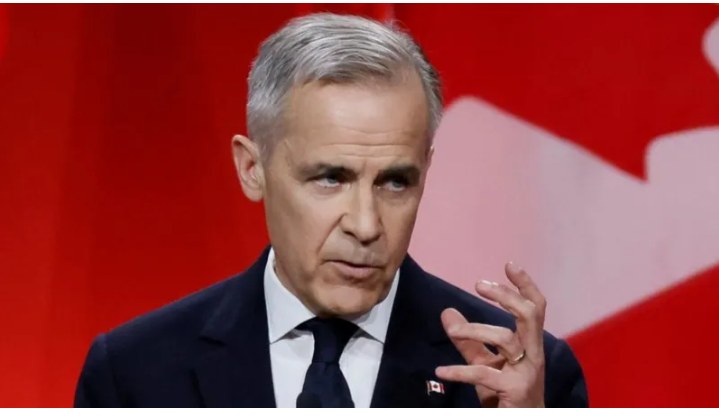Mark Carney Becomes Canada’s Prime Minister, Pledges Strong Stance Against US Trade Threats.
Mark Carney has won the race to succeed Justin Trudeau as Canada’s prime minister, vowing to stand firm against US President Donald Trump’s trade policies. Carney, a former governor of both the Bank of Canada and the Bank of England, secured a landslide victory in the Liberal Party’s leadership contest, defeating three rivals.
The 59-year-old leader delivered a powerful victory speech in which he criticised Trump’s recent tariffs on Canadian goods and dismissed the US president’s controversial remarks about making Canada the 51st American state. “Americans should make no mistake,” Carney declared. “In trade, as in hockey, Canada will win.”

Carney is expected to be sworn in as prime minister in the coming days and will lead the Liberals into the next general election, which could be called within weeks. Despite his extensive financial background, he has never held elected office before.
A New Era for the Liberals
The Liberal leadership contest began in January following Trudeau’s resignation after nearly a decade in power. Trudeau had faced growing internal pressure to step down due to declining public support, fuelled by concerns over the cost of living and a worsening housing crisis.
Carney secured an overwhelming victory on the first ballot, winning 85.9% of the vote. His nearest rival, former Finance Minister Chrystia Freeland, was soundly defeated. Loud cheers erupted from a crowd of 1,600 party supporters in Ottawa as the results were announced. More than 150,000 ballots were cast in the leadership race.
Carney’s leadership marks a dramatic political turnaround for the Liberals. Earlier in the year, they trailed the opposition Conservatives, led by Pierre Poilievre, by more than 20 points in the polls. However, Trump’s aggressive trade stance and his remarks about Canada’s sovereignty have galvanised Canadian voters, helping the Liberals regain lost ground. Some recent polls now suggest they are statistically tied with Poilievre’s party.
A Tough Stance on Trade
In his victory speech, Carney denounced Trump’s “unjustified tariffs” on Canada, which saw the US impose a 25% levy on Canadian goods last week. Though the US quickly backtracked on some of these measures, Canada responded with its own retaliatory tariffs.
Carney echoed Trudeau’s previous accusations that Trump was attempting to damage Canada’s economy. “We can’t let him succeed,” he told his supporters, as the crowd responded with loud boos. He further pledged that his government would maintain tariffs on US imports “until the Americans show us respect”.
Canada’s economy is heavily reliant on trade with the US, and economists warn that full implementation of Trump’s tariffs could push the country into recession. Acknowledging these concerns, Carney urged unity and resilience.
“I know these are dark days,” he said. “Dark days brought on by a country we can no longer trust. We’re getting over the shock, but let us never forget the lessons: we have to look after ourselves and we have to look out for each other. We need to pull together in the tough days ahead.”
A Challenging Road Ahead
Carney will now lead a minority government, meaning he could face an early election if opposition parties force a no-confidence vote. He also has the option to call a snap election himself in the coming weeks.
Meanwhile, Conservative leader Pierre Poilievre will now have to shift his strategy to challenge Carney, as the political landscape in Canada rapidly evolves.
Carney’s transition from top banker to prime minister comes at a crucial moment for Canada, as the nation prepares to navigate economic uncertainty and a tense relationship with its closest trading partner.


